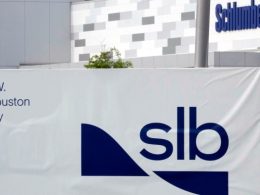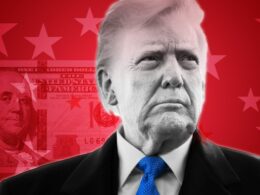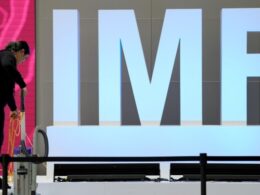Unlock the Editor’s Digest for free
Roula Khalaf, Editor of the FT, selects her favourite stories in this weekly newsletter.
GSK will use technologies including artificial intelligence to improve its productivity as a means of compensating for the potential financial hit from US tariffs on the pharmaceutical sector.
The UK-listed drugmaker said it was “well positioned” to respond if the Trump administration decided to hit the industry with tariffs following a probe into the national security implications of pharma imports.
GSK has identified “productivity initiatives” that could save money, such as using technology to improve procurement processes and AI to find efficiencies, according to a person familiar with the matter.
The company has also identified “mitigation options” in its supply chain, which could include dual sourcing of ingredients, as well as increased manufacturing in the US, the company said on Wednesday, as it reported first-quarter results.
GSK is planning tens of billions of dollars of investment in manufacturing and research and development in the US over the next five years, which is included in its outlooks, it said.
GSK already has six manufacturing sites in the US, including an $800mn investment under construction in Pennsylvania which was announced last year. Its comments come after AstraZeneca said on Tuesday it would deepen its manufacturing presence in the US.
The pharmaceutical industry was excluded from the so-called reciprocal tariffs announced at the start of April, but US President Donald Trump has repeatedly said he plans to apply them to the sector, in order to encourage investment in US manufacturing.
In the first quarter, GSK’s strong sales of speciality medicines compensated for a drop in vaccine sales, helping the pharmaceutical company beat expectations.
Emma Walmsley, GSK’s chief executive, said speciality medicines, the group’s largest business, delivered “strong sales” in the quarter, adding that it is focused on upcoming launches of cancer and asthma drugs.
“This momentum, together with the strength of our portfolio and proven ability to drive operating leverage, underpin our confidence in guidance for the year and our longer-term outlooks,” she said.
Total revenue was £7.5bn in the quarter, higher than the consensus forecast for £7.4bn, and up 4 per cent year on year at constant exchange rates.
Sales of speciality medicines rose 17 per cent from the same period the year before, but sales of vaccines fell 6 per cent. Sales of Arexvy, the jab for respiratory syncytial virus, fell 57 per cent, after a US advisory body recommended a smaller group of people receive the vaccine.
Core earnings per share stood at 44.9p, above the average analyst estimate of 40p, and up 5 per cent from the same period the year before.
Shares in GSK have fallen 12 per cent in the past year. Last quarter, GSK launched a rare £2bn share buyback programme, and on Wednesday, said it had bought back £273mn in stock so far. It declared a dividend of 16p for the first quarter, and expects to pay a dividend of 64p for the full year.
Source link









